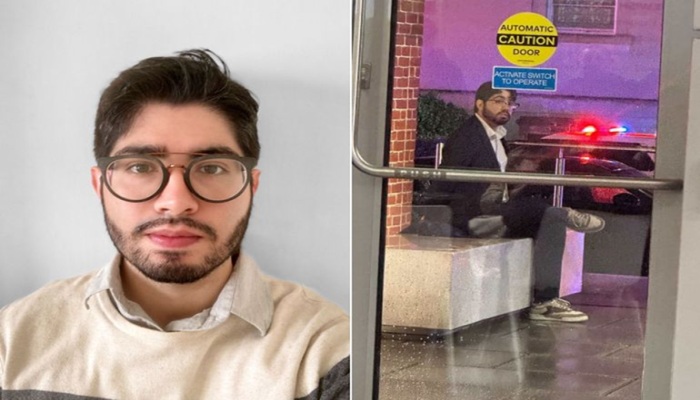
Afrasianet - The shooting of two Israeli embassy employees near the Jewish Museum in Washington, D.C., sparked a wave of interaction on social media platforms, especially after the name of the 30-year-old American "Elias Rodriguez" was circulated as the main suspect in the attack, and the incident was accompanied by his famous chant: "I did it for Gaza."
American, Arab and Israeli media reported details of the early moments of the incident and police investigations, many of which focused on Rodriguez's political background and slogans.
Several Arab platforms and social media users described the scene as "a cry of justice against the crimes of the occupation," while Israeli newspapers considered the incident "anti-Semitic."
The video of the moment of arrest, which went viral in the United States and the Arab world, added a symbolic dimension to the scene, as Rodriguez appeared handcuffed, sitting quietly with leg upon leg, while chanting "Freedom for Palestine" echoed.
The video was widely circulated and used in support campaigns, graphics and pages of solidarity with Palestine.
Thousands of comments and tweets came out between sympathetic to the young man and a justification for his action, and from a skeptic of the US police narrative, to those who sought to analyze the dimensions of the incident and link it to broader political developments.
Solidarity campaigns with the young man and Palestine were widespread: under the hashtags #الحرية_لفلسطين and #Done_ByGaza, and photos and videos emerged showing the moment Rodriguez was arrested chanting "Freedom for Palestine" and wearing a Palestinian keffiyeh.
Activists said his cry was an expression of accumulated anger at what is happening in Gaza, and that his action comes in the context of solidarity with the Palestinian people.
Others added that Israeli Prime Minister Benjamin Netanyahu and his government were responsible for such operations because their crimes in Gaza over the past 19 months span all borders.
They pointed out that the Israeli massacres in Gaza cannot be tolerated by any free person and that Netanyahu must stop the war of extermination he is waging against the people of the Strip.
One activist wrote: "Elias provided a living example of a young man who not only did not only do digital solidarity but sacrificed his freedom for a cause he believed in."
On the other hand, another current has emerged that questions the authenticity of the identity of the perpetrator and his motives.
Tweeters pointed out that US police are often quick to identify defendants, sometimes arresting people based on their appearance or clothing without verifying forensic evidence. Tweets went viral: "It is inconceivable that Elias was the real perpetrator, he was probably arrested just because he was wearing a keffiyeh in the audience."
Others went on to conspiracy theories, accusing Israeli intelligence agencies of orchestrating the operation itself or exploiting it politically to pressure the White House and President Trump in particular, after his recent positions were described as less supportive of Israel than usual.
"What happened is an attempt to bring Trump back to the house of obedience, and a bloody message to the White House," he tweeted.
Information circulating on social media platforms is that Elias Rodriguez is an oral history researcher for the History Makers organization in Chicago.
Born and raised in Chicago, Illinois, Elias earned a bachelor's degree in English from the University of Illinois at Chicago.
Prior to joining History Makers in 2023, he worked as a content writer for commercial and non-profit companies in the technology sector nationally and regionally.
Elias is known for his passion for reading and writing novels, attending live music events, watching movies, as well as exploring new places. He currently lives in the Avondale neighborhood of Chicago.

